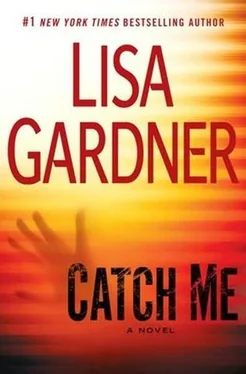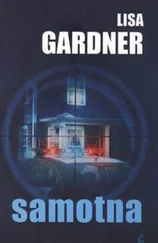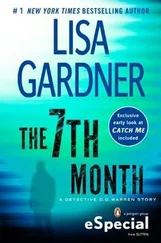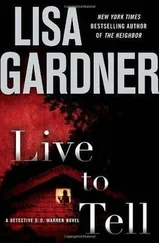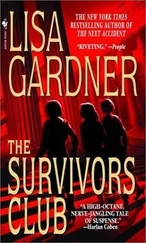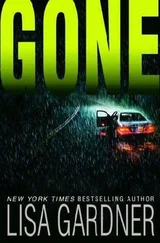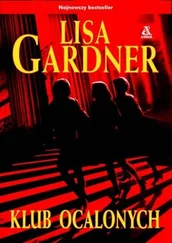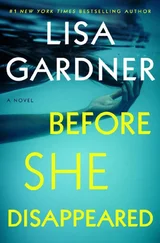I did what comm officers do. I asked questions, I got answers, I dispatched several officers to the scene, and I kept Michael on the line. Forty-five minutes that call lasted. We sang silly songs. Exchanged knock-knock jokes. Michael and Mica even taught me some ghetto slang to improve my street cred.
By the time the first of my officers had arrived, the men were gone, and Stan grew pissed off at having a patrol man on his doorstep. Officer Mackereth, Tom, had been on duty that night. He’d done good. Never mentioned Michael or Mica, two frightened kids huddled with a phone in the closet. Just said he’d responded to reports of an argument in the neighborhood. Had Stan seen or heard anything?
After that, Michael started calling more often. Sometimes just to talk. Because nights were long in his house, and who cared about monsters under the bed when the real thing was passed out drunk on the family room sofa? He worried about his mom. He was terrified for his sister.
After the last recorded call, three weeks ago, Social Services had paid the family a visit. As Michael explained to me days later, Stan rounded up the family and sat them before the caseworker. They were to answer all questions openly and honestly. While Stan stood there and glared at them.
The moment the social worker left, Stan got out a hammer. He broke all of Tomika’s fingers, then four of Michael’s, then two of little Mica’s. No one, he informed them, would be dialing the phone ever again. Or next time, he wouldn’t be getting out a hammer-he’d get out an ax.
It had taken Michael twenty-four hours to work up the courage to dial 911 with his pinkies. Then he’d had to wait another two days for it to be my turn on graveyard shift. If anyone ever listened to that recorded call, it would sound like a little boy, playing with the phone, looking for his mother’s number. It would sound like an exasperated dispatch officer finally rattling off a number to appease the child.
That it happened to be the dispatch officer’s own prepaid cell was just because, of course. What other numbers do you know off the top of your head?
Michael and I took our conversation off-line, where his mother, Tomika, joined the party. Then I liquidated my entire savings accounts, all forty-two hundred dollars, to buy a woman and her two children brand-new IDs, to cover first and last month’s rent plus security deposit on a new apartment, and to pay for the bus tickets that would get them all there.
Seventy-three hours and thirty minutes remaining.
What would you do?
I ESCORTED TOMIKA, MICHAEL, AND MICA to the bus stop. It would take three more exchanges to get them to Portsmouth, New Hampshire, but Tomika had an old girlfriend there, who’d set her up with job. New names, new life, new opportunity.
Tomika was crying.
“I love him,” she said, then brushed her cheeks with hands thick with finger splints and white bandages.
“He’ll kill you.”
“I know.”
“He’ll kill your children.”
“I know.”
Michael had his arm around his little sister’s shoulders. His expression, as he stared at his mother, was resigned.
“Mommy?” Mica finally spoke up.
Tomika glanced down at her daughter, sobbed harder. “I swear I won’t go back. I’ll be strong. I’ll take care of us, baby. I promise, I’ll take care of us.”
Given the state of her splinted fingers, I helped her organize the new IDs in her purse. I opened her wallet, withdrew her old driver’s license, slipped in the new one, made with the help of one of her Facebook photos and J.T.’s friend. In thirty seconds Tomika Miller became Tonya Davis. I wrapped my turquoise scarf around her neck, slipped dark sunglasses over her eyes, and added a bright hat to cover her uptucked hair.
For Michael and Mica, we had something simpler in mind. Michael gained a wig, becoming the seven-year-old sister, while Mica’s ponytail was summarily cut off, turning her into a four-year-old younger brother.
Later, at the bus stop, should Stan Miller ask questions, no one would know of a lone woman with an older son and younger daughter boarding the bus. They’d only witnessed two women and two children who climbed on together, with an older girl and younger boy. I handled all the tickets again, so Tomika could keep her bandaged hands hidden inside her coat. Another question Stan might think to ask, but no one in the bus depot would have the answer.
At the last minute, I got back off the bus, mentioning I’d forgotten something, would catch up later.
Right before exiting, I leaned down and slipped a prepaid cell, recently purchased from Wal-Mart, into Michael’s pocket. It was programmed with a single number-my own. I whispered in his ear, “Call me. Anytime. I’ll be there, Michael. I’ll be there.”
Then I was off. Five minutes later the bus pulled away, Tomika Miller and her two kids getting a fresh start in life.
Until the first time it grew too tough, and Tomika gave in to the urge to call her husband. Or broke down and told her story to a friend who’d tell a friend who’d tell a friend who’d tell Stan Miller. Or Stan himself managed to track them down.
Maybe this time, Stan would bring that ax. Maybe this time, Michael would call me, begging, pleading, screaming desperately for help.
Maybe it would be after 8 P.M. on January 21.
And my phone would ring and ring and ring. Nobody left alive to answer.
I glanced at my watch. 7:42 P.M.
Seventy-two hours and fifteen minutes left to live.
What would you do?
I headed back to Tomika’s old address. I headed for Stan Miller.
THINGS I DIDN’T KNOW about myself until the last year: I am, or used to be, deeply, deeply terrified of fighting back. First time my boxing coach tried to get me to spar in the ring, I couldn’t do it. Shadowboxing, sure. Heavy bag work, no problem. Speed bag, fun. But to hit someone, actually pull back my arm, then snap my fist forward, rolling my shoulder, rotating at the waist, stepping into the full velocity of the punch, committing to my opponent’s gut, kidney, chin, nose, right eye. Couldn’t do it.
I danced around the ring. Dodged, ducked, V-stepped, sidestepped, elbow blocked, swatted, did anything but throw a punch.
All those years of going along. All those years of being a brave little girl, a good little girl. I couldn’t retaliate.
My mother had trained me too well.
At the end of the sixth session, in sheer frustration, my boxing coach, Dick, a retired three-time world champion, nailed me in the eye. It hurt. My cheekbone exploded. My eye welled with tears. I recoiled, stared at him incredulously, as if I couldn’t believe he’d done such a thing.
He jabbed me in the other eye. Then the gut, the shoulder, the chin. My coach started wailing on me.
And I took it. I hunched over, fists in front of my face, elbows glued to my rib cage, and let him beat me.
Brave little girl. Good little girl.
Making my mother proud.
Dick gave up first. Walked away in disgust. Muttering at me for not fighting, muttering at himself for beating up a defenseless girl.
And that did it. I finally registered my own pain. I finally heard someone calling me a defenseless girl and I lost it.
I attacked my fifty-five-year-old, gristle-haired, battle-scarred boxing coach and I tried to kill him. I threw jabs, right hooks, uppercuts, left hooks, solid punches, endless kidney shots. I chased him around the ring, corner to corner, and I discovered inside myself something I’d never known was there-rage. Pure, unadulterated rage. And not the good old, I’m twenty-eight years old and I’m finally pissed off at my mother rage, but the better, harder, I’m twenty-eight years old and I’m finally pissed off at me rage. Because I’d taken it. Because I was a good girl and a brave girl and I went along. So help me God I went along and I went along, and I was never going along again.
Читать дальше
